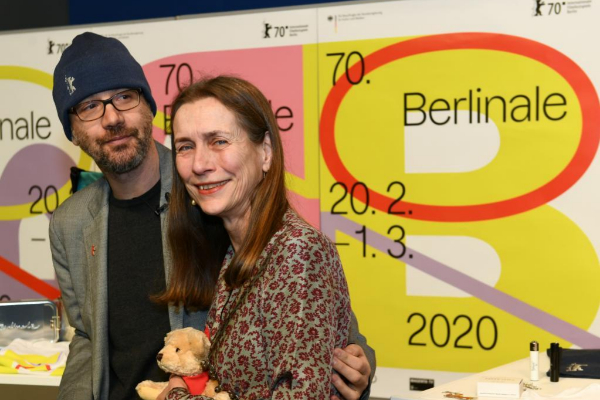The revelation of the Nazi past of the founder of the Berlinale, Alfred Bauer, has shaken the film festival, which on February 20 will open an edition with which he planned to celebrate 70 years of an event born in the postwar period and promoted by the allies .
The management of the Berlinale, recently taken over by the Italian Carlo Chatrian and the Dutch Mariette Rissenbeek , did not take an hour to react to the diffusion Wednesday of an editorial breakthrough of the weekly Die Zeit . Shortly after, he published on his website the decision to "suspend" the prize instituted in memory of Alfred Bauer .
The aforementioned publication "gives new light" to the position that Bauer occupied under National Socialism , pointed out the festival. "We applaud Die Zeit's research and make this information available for external researchers to study the history of the festival," the statement continues.
Die Zeit's revelations are compromising. Bauer, director of the Berlinale from 1951 to 1976 , worked in the general direction of the Third Reich cinema , created in 1942 by his propaganda chief, Joseph Goebbels. Its mission was to control the people involved in the film industry , from actors to directors, cameras and technical staff.
He was involved in decisions about who worked and who didn't and who was exempt from serving in the Nazi army. He was a "faithful man" to the Hitlerian SA (brown shirts), summarizes the publication, as well as a member of the National Socialist Party of Adolf Hitler.
Until now it was known that he practiced in the cinema under the Third Reich and that he had belonged to organizations of the regime. This was stated in the book published in 2000 by the Berlinale, on the occasion of the 50th anniversary of the festival.
Prize suspension
"We were informed of the 'Die Zeit' information yesterday, just after the press conference to present the next Berlinale program," festival sources told Efe. "We immediately posted the decision to suspend the award on the web," the spokeswoman added.
The Alfred Bauer Prize was instituted in 1987. Just in this edition the "Special Jury Prize" booklet was added to its name . It is the third prize of the winners of the festival, after the Golden Bear for best film and Silver Bear Grand Jury Prize.
The direction of the festival does not consider "for the moment" to replace it with another , with another denomination, said that source. Thus, an award disappears in whose list there are Latin American productions such as Argentina's La Ciénaga , by Lucrecia Martel (2001), El Custodio , by compatriot Rodrigo Moreno (2006), Lake Tahoe , by Mexican Fernando Eimbcke (2008), Gigante , from Uruguayan Adrián Bniez (2009), Oxcanul , of the Guatemalan Jayro Bustamante, and Las herederas , of the Paraguayan Marcelo Martinessi.
The 70th edition of the Berlinale will include 18 films in competition in its official section. There will be Siberia , of the American Abel Ferrara, as well as The roads note taken , of the British Sally Potter, with the Spanish actor Javier Bardem and his Mexican colleague Salma Hayek in his leading roles.
New values will also compete, such as Argentina's Natalia Meta, with The Fugitive , in a selection in which Chatrian and Rissenbeck combine consecrated with emerging talents.
The information of Die Zeit on Bauer (1911-1986) will plan on a festival that was created in the tough postwar period in the area controlled by US allies.
With the construction of the Berlin Wall, in 1961, the Berlinale became a cinematographic screen of a broken city and a symbol of the cold war , but not resigned, but willing to receive its dose of international glamor every year.
The ballast of the story about Bayreuth, among others
That his first director had militated in the NSDAP, the Nazi party, is not a unique or strange case. The stigma of National Socialism weighs on several of Germany's great cultural events .
The most profusely related to Nazism is the Richard Wagner Festival in Bayreuth (Bavaria) , for which Hitler ruled during the Third Reich. Winifred, the fervent British worshiper of the 'führer' who married the composer's son, Siegrid, put the festival at the foot of the Nazi apparatus .
Winifred and Siegried's sons, Wolfgang Wieland Wagner, were treated by Hitler almost like nephews, with whom he walked through the Bayreuth gardens among military uniforms. It was up to both of them to refound in the postwar period a festival that had remained after the Capitulation under the tutelage of the winning allies .
Bayreuth has never tried to hide or minimize that story . Seminars of historians have been devoted to his study for years, as well as exhibitions at the Richard Wagner Museum in the city.
La Berlinale has now opted for a quick decision, a few weeks after the opening of the festival. What will not prevent me from weighing the question of how that issue was not addressed before , in a contest with a reputation as a politician, which in addition to its competition section and other sections has, edition after edition, its historical retrospectives.
According to the criteria of The Trust Project
Know more- Germany
- culture
Comic The Marvel Universe expands towards the conquest of audiobooks
Goya 2020 Awards Benedict Sanchez: photographer in Brazil, battered woman, single mother and Goya nominee at 84
Cine 'Dolor y gloria' by Almodóvar, nominated for the César awards of French cinema for best foreign film

